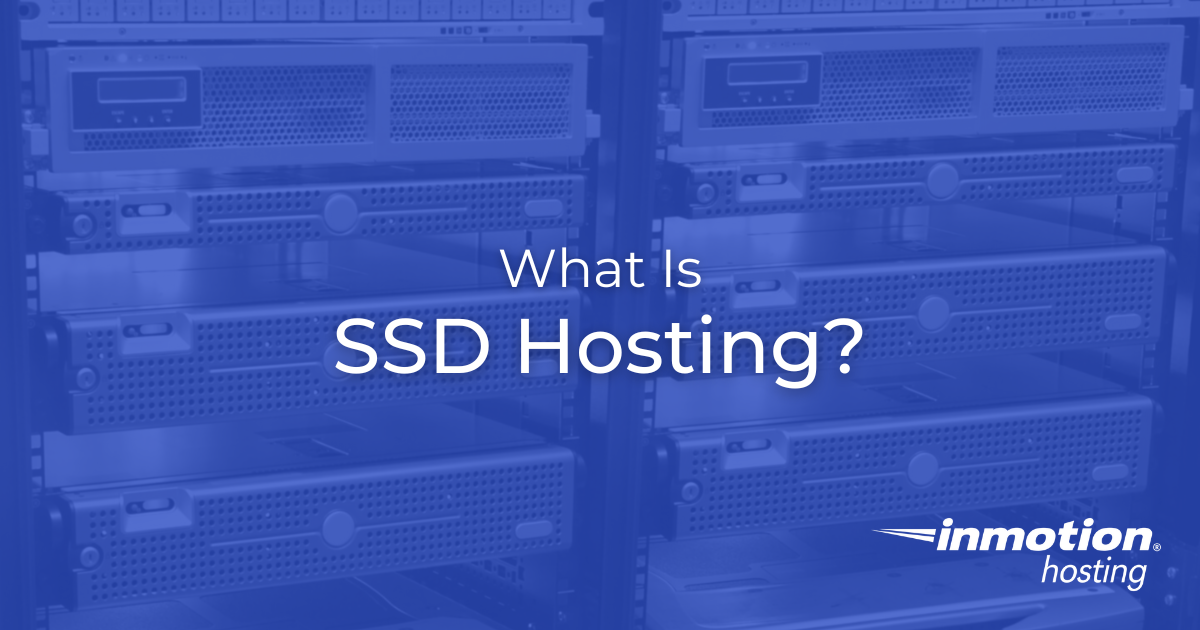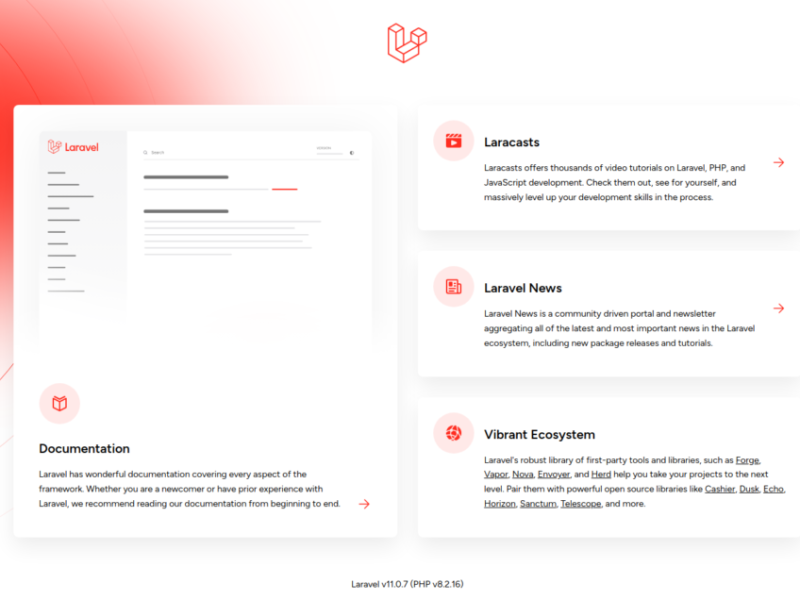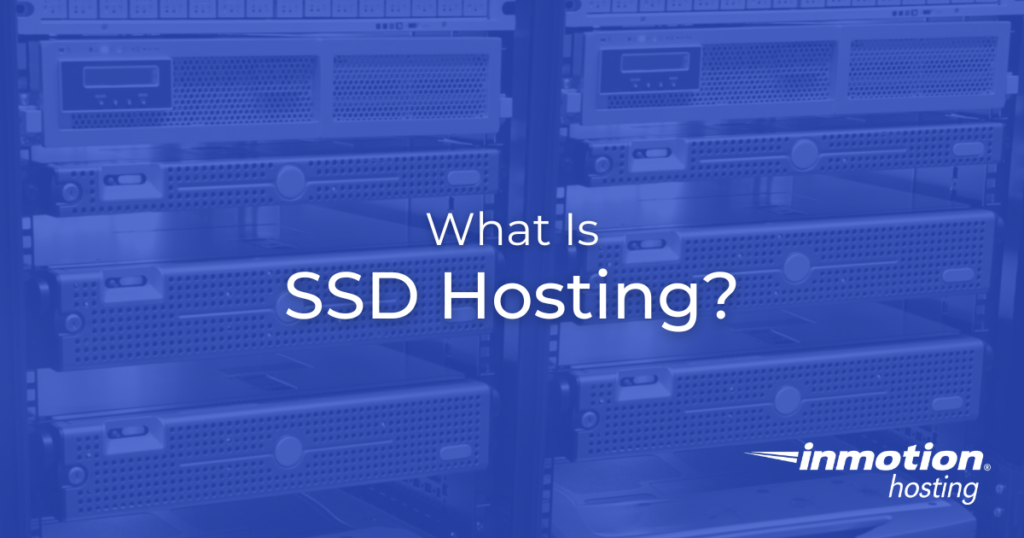
If you’re in the web hosting market, you may have heard the term “SSD hosting” or “hard disk hosting.” What is SSD hosting and why is it important for your website? In this article, we will discuss what SSD hosting is and why it is the best choice for your website.
What is SSD hosting?
SSD hosting is a type of web hosting that uses solid state drives instead of traditional hard drives. Solid state drives, or SSDs, have no mechanical parts and use interconnected flash memory chips to store data, unlike the spinning disks used by hard drives. This makes SSDs faster and more reliable than HDDs, making them an excellent choice for web hosting.
The memory mechanism of a solid state disk is very similar to RAM, except that data is stored in non-volatile flash memory. “Volatile” means that the data stored in the memory will not be lost when the device is turned off. All types of computers usually have two types of memory: non-volatile and non-volatile memory. Non-volatile memory is usually referred to as RAM, and non-volatile memory has traditionally been hard drives or other types of media storage (eg USB thumb drives and recordable optical media such as DVD and CD-ROM).
Why use SSDs for your web server?
The main advantage of using an SSD server is its performance, increased speed, reliability and energy efficiency.
Servers with SSD has several advantages without them. Their data can be accessed faster, so websites hosted on servers with SSDs load faster and experience less hardware failure.
Servers without SSD Use traditional hard drives, which are slower and less reliable than SSDs. While these servers may be cheaper, they can cause slower website load times and more frequent downtime due to hardware failure.
Advantages of SSD Hosting
There are many benefits to using SSD hosting for your website – whether it’s for business, a personal project, or a web app. Simply put, SSDs are faster, experience less downtime, and are more energy efficient. Websites hosted on servers with SSDs are easier to back up and migrate because SSDs are less prone to hardware failure, meaning you’re less likely to lose data due to a failed drive.
increased speed
One of the main advantages of SSD hosting is that it offers faster loading times for websites. With an SSD, the server can handle more disk read/write requests before becoming unstable. So even during peak usage, backup I/O requests can be received. Faster read/write speeds allow websites to load faster, especially for the occasional read/write operations you typically encounter in a server environment.
Did you know that SSDs open files and update the operating system 30% faster than HDDs? A server with SSD hosting takes about 10-13 seconds to boot, while HDD can take 30-40 seconds.
This may not seem like much, but when you consider server reboots, those 40 second reboots can be extremely frustrating.
One in four visitors will abandon a site if it takes more than four seconds to load.
Google also penalizes sites with slow load times, affecting search rankings. Let’s take a look at how a slow loading website affects your bottom line. For example, if an e-commerce site generates $100,000 per day, a one-second page delay could cost you $2.5 million in lost sales per year.
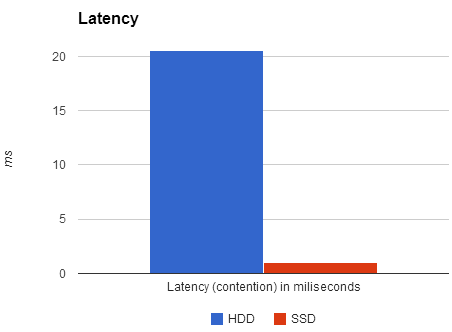 |
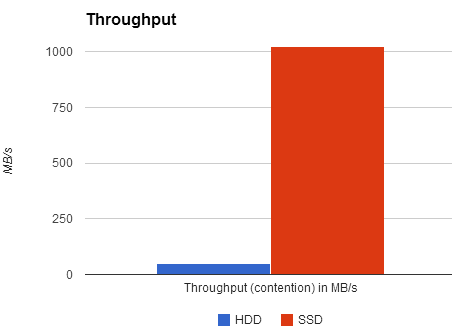 |
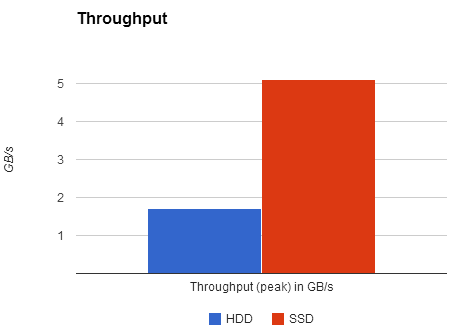 |
| SSDs are 20 times faster than conventional HDDs when it comes to latency when the server is busy with I/O requests. | When a server is busy with I/O requests, a standard HDD can only transfer 5% as much data as an SSD. | When the server is not busy with I/O requests, a standard HDD can still only transfer 35% as much data as an SSD. |
Improved reliability and dependability
One of the most important advantages of SSD hosting is its improved reliability and reliability. Unlike HDDs, SSDs have no physical moving parts, making them less prone to catastrophic and mechanical failures. This means that SSDs are more reliable over time and businesses can rely on them to keep their data safe and secure.
SSD can maintain data integrity More than 300 years and easier recovery of lost data in case of failure. SSD servers often provide warnings before failure, allowing the hosting company to make the necessary changes before the failure occurs. HDDs, on the other hand, rarely give warnings before the drive fails.
more energy efficient
SSDs are more energy efficient than traditional hard drives, producing less friction and resulting in lower energy bills. This, in turn, helps reduce cooling costs. Hosting companies can create more affordable packages for customers by reducing these costs, which will positively impact their bottom line.
Reduced latency
Latency is the time it takes for a server to respond to a client request. With SSD hosting, latency is reduced, resulting in faster website loading times, which improves the user experience, leading to more conversions and sales.
Faster recovery time
In the event of a catastrophic failure, SSDs allow for easy recovery of lost data. Unlike traditional hard disk drives (HDD), SSDs have no moving parts, making them more reliable and less prone to mechanical failure. HDD recovery is often more expensive and less guaranteed, making SSDs the preferred choice for businesses that rely on data integrity, longer uptime and reduced costs in the event of failure.
Why SSD hosting is the best choice for your website
In conclusion, SSD hosting offers a number of benefits over traditional HDD hosting solutions. With faster recovery times, increased speed and durability, improved reliability, reduced latency, and easy website backups and migrations, it’s easy to see why SSD hosting is quickly becoming the standard for high-quality web hosting solutions.
InMotion Hosting provides SSDs for all hosting accounts at no extra charge. Choose InMotion Hosting’s SSD hosting for improved website performance and increased reliability.

